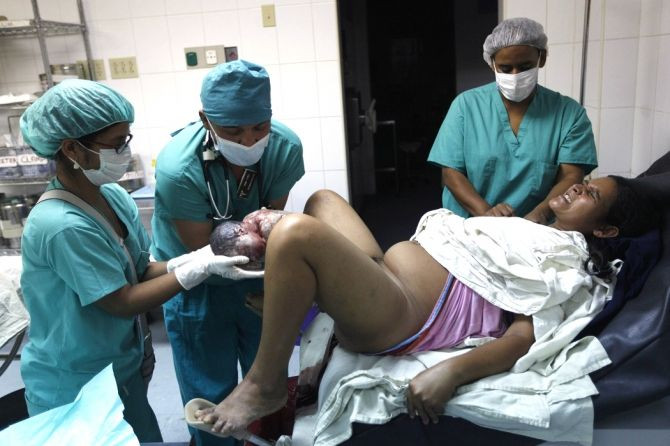1 in 3 Women Suffer PTSD Symptoms After Childbirth

While post-traumatic stress disorder (PTSD) often develops in people who have experienced highly traumatizing situations like terrorist attacks, natural disasters, robberies or car accidents, a new study finds that the mental disorder can also develop after normal life events like childbirth.
Alarmingly, more than a third of all women after pregnancy exhibit some symptoms of PTSD and more than 3 percent exhibit full-blown PTSD following labor, according to Israeli researchers.
Researchers said that the findings, published in the Israel Medical Association Journal, were surprising because it suggests that there is a relatively high prevalence of PTSD.
Researchers Rael Strous, Associate Professor at Tel Aviv University, and Dr. Inbal Shlomi Polachek, of the Beer Yaakov Mental Health Center, found that 80 percent of the women who developed PTSD opted for natural childbirth without pain relief.
Other strong predictors of post-partum PTSD include a woman's discomfort with her body image, fear during labor and complications in the present and earlier pregnancies and labors.
While some experts in the field are still questioning whether or not childbirth qualifies as a "traumatic event," Strous said that even though childbirth is not a sudden and unexpected event like an accident, giving birth to a child is accompanied by a real and justified fear of danger, as expectant mothers fear for not just their own safety but also for the health and well-being of their offspring.
The study consisted on 89 post-partum women between the ages of 20 and 40. Researchers interviewed the women first within 2 to 5 days after delivery and then one month after delivery.
The results show that 25.9 percent of the women interviewed displayed symptoms of post-trauma, 7.8 percent suffered from partial post-trauma, and 3.4 percent exhibited symptoms of full-blown PTSD.
The most common symptoms experienced included flashback of the labor, the avoidance of discussion of the event, physical reactions like heart palpitations during such discussions, and a unwillingness to consider having another child, researchers reported.
Researchers found that one of the most significant factors of PTSD was pain management during delivery. About 80 percent of women who experienced partial or full post-trauma symptoms had delivered via natural childbirth, without any pain relief.
"The less pain relief there was, the higher the woman's chances of developing post-partum PTSD," Strous said in a statement.
In contrast, only 48 percent of the women who did not develop any PTSD symptoms experienced a natural childbirth.
Exactly 80 percent of the PTSD group reported feeling uncomfortable with being unclothed and 67 percent had previous pregnancies that they described as traumatic.
Women's fear of the labor itself, both in terms of pain and danger to themselves and their children was also a significant predictor of PTSD.
Researchers said that support during labor, in the form of a midwife or doula, and other factors like socioeconomic status, marital status, level of education and religion also had no impact in helping women avoid PTSD symptoms caused by childbirth.
Researchers recommend that health care professionals become familiar with the profile of women who are more susceptible to develop from post-traumatic symptoms, and to be on the look-out for warning signs after labor.
Doctors should also offer better counseling and pain relief and make sure that patients' bodies are adequately covered during delivery.
"Dignity is a factor that should be taken into account. It's an issue of ethics and professionalism, and now we can see that it does have physical and psychological ramifications," Strous explained.



























